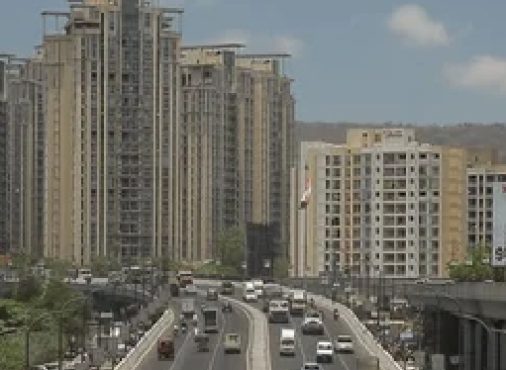Be it for leisure, long-term asset appreciation, or rental income, investing in a second home is a carefully thought-out financial decision and comes with its unique risks. To protect against these risks, it becomes crucial to get second home insurance. Unlike primary home insurance, it covers vulnerabilities associated with second homes, such as extended vacancy periods, location-based risks, and potential rental damage.
Here’s a comprehensive guide for second home insurance, which covers everything a homebuyer should know, including the importance of second home insurance, factors affecting the premiums, and common mistakes to avoid.
What is Second Home Insurance?
Second home insurance is a specialised policy that provides coverage for a secondary residence, protecting it against property damage, theft, and liability risks, whether used seasonally or as a rental property. This policy covers:
- Property Damage: Damage to properties from natural disasters, fire, and vandalism.
- Liability Protection: Second home protection insurance provides liability coverage for accidents or damages occurring on your secondary property, safeguarding you against financial losses.
- Rental Coverage: Loss of rental income due to damage to rented properties.
What is the Difference Between Primary Home and Second Home Insurance?
Here are a few key differences between primary and second home insurance:
| Feature | Primary Home Insurance | Second Home Insurance |
| Definition | Insurance for the main residence where the owner lives full-time. | Insurance for the owner’s secondary residence, such as a vacation home or rental property. |
| Coverage Scope | Structural damage, personal belongings, and liability. | Structural damage, liability, and loss of rental income. |
| Risk Factor | Lower risk as the home is occupied and maintained. | Higher risk because of extended vacancy, environmental exposure, and potential theft. |
| Premium Costs | Generally lower because of continuous occupancy. | Higher because of increased risk factors (burglary, vandalism, natural disasters). |
| Liability Cover | Covers accidents and damages within the home. | Include liability cover but require additional protection for renters and guests. |
| Rental Coverage | Not required | This might include loss of rental income if the property is rented out. |
Here are different types of second home insurance policies with their coverage:
- Standard Second Home Insurance: This covers basic risks, such as theft, fire, and liability.
- Comprehensive Insurance: This insurance provides broader protection, including damages from natural disasters and rental coverage.
- Specialised Policies: These policies are designed for unique and high-value properties that require custom coverage.
Read Also: The Financial Benefits of Owning a Second Home
Why Do You Need Second Home Insurance?
These are some of the reasons why you need a second home insurance:
- Protection Against Damage: Second homes, especially those in remote or high-risk locations like mountains or beachfront areas, are more vulnerable to weather-related damage. Additionally, vacant properties face a higher risk of burglary and vandalism.
- Liability Coverage: Liability insurance for rented-out second homes helps protect against claims arising from accidents or damages on the property. This coverage is especially crucial for short-term vacation rentals, where frequent guest turnover increases the risk of incidents.
- Financial Security: Luxury homes represent significant investments, making it essential to safeguard them against unforeseen damages. A comprehensive insurance policy can help cover repair and maintenance costs, ensuring long-term financial stability.
What Factors Affect Second Home Insurance Premiums?
The premium for second home insurance depends on many factors, such as:
Location and Risk Factors
Properties located in hurricane-prone areas (Juhu, Worli Sea Face), high-crime neighbourhoods (Vasai, Nalasopara), or flood zones (Versova, Bandra) generally have higher premiums as they are more prone to damage.
On the contrary, locations with proximity to medical services, police, and fire stations (Khar Road, Colaba) can lower insurance costs because of lower risks.
Property Value and Construction Type
As luxury homes require more extensive coverage because of higher maintenance and repair costs, they demand higher premiums. The construction material used can also affect the premium; for instance, fire-resistant materials often reduce premium costs.
Security Features
Homes equipped with security systems, CCTVs, smart locks, and gated access may qualify for lower insurance premiums. Additionally, properties in secured communities or those with 24/7 surveillance may also be eligible for premium discounts.
Insurer
Different insurers might charge different premiums based on the policy depending on your coverage. For instance, some providers might offer liability coverage and landlord insurance within their policy, and others might charge for it separately. Comparing quotes from multiple insurers is a recommended practice to ensure the best coverage at a competitive price.
Read Also: Should You Buy a Second Home for Leisure or Investment?
Tips for Choosing the Right Insurance Policy
Choosing the right insurance policy for your second home can be confusing because of a variety of choices and policy providers. Here are the tips for choosing the right one:
- Asses Coverage Needs Based on Property Usage: Choose a policy based on how the property is used—whether it is occupied frequently, seasonally, rented out, or mostly vacant.
- Compare Quotes from Multiple Insurers: Different insurers will give you different quotes. As a good practice, you should obtain estimates from at least three insurance providers for the best deal.
- Understand Policy Exclusions and Limitations: You should always read the fine print to understand policy exclusions and limitations. For example, some policies may exclude damage from natural disasters.
- Bundle Insurances for Discounts: If you already have insurance for your primary home, you may be able to bundle your second home with the same provider to receive discounts.
- Additional Coverages: If you have rented out your home, consider landlord insurance or rental income protection for more comprehensive protection.
Common Mistakes to Avoid When Insuring a Second Home
If this is your first time insuring a second home, these are some common mistakes to avoid:
- Underinsuring the Property: You should avoid selecting policies with minimal coverages for cost saving as it can lead to out-of-pocket expenses in case of disasters.
- Ignoring Additional Coverage Options: It is necessary to cover your second home depending on its location and usability. For instance, flood and earthquake insurance is important for homes in high-risk areas, and rental income protection is beneficial to cover lost rent income due to damages.
- Failing to Update the Policy After Renovations: If you have recently renovated your home, it is necessary to inform your insurer to adjust coverage according to the upgrades.
- Not Checking Policy Renewals and Changes: You should review your policy annually to ensure it still meets your needs and provides an updated risk assessment.
Conclusion
We hope this provides you with a clearer understanding of the importance of second-home insurance policies. Be it to safeguard against natural disasters, ensure liability protection, or cover rental income loss, second home insurance will ensure your peace of mind.
For maximum protection and lowest premiums, always check with multiple insurers before finalising a policy and reading the fine print.
If you are looking for premium second home options, explore Rustomjee’s luxury properties that cater to everyone’s lifestyle needs.
FAQs
- Is second home insurance mandatory?
No, it is not legally mandatory to get second home insurance. However, it is highly recommended to protect yourself against financial losses from natural disasters, liability, theft, and maintenance costs.
- What should I do if my second home is damaged?
In case of damage to your second home, you should immediately report the damage to your insurer, document the loss, and initiate the claims process as per your policy terms.
- Does second-home insurance cover damage from guests or short-term renters?
Standard second-home insurance may not fully cover damages caused by guests or short-term renters. You may need additional coverage, such as a landlord or vacation rental policy, to protect against potential liabilities.







